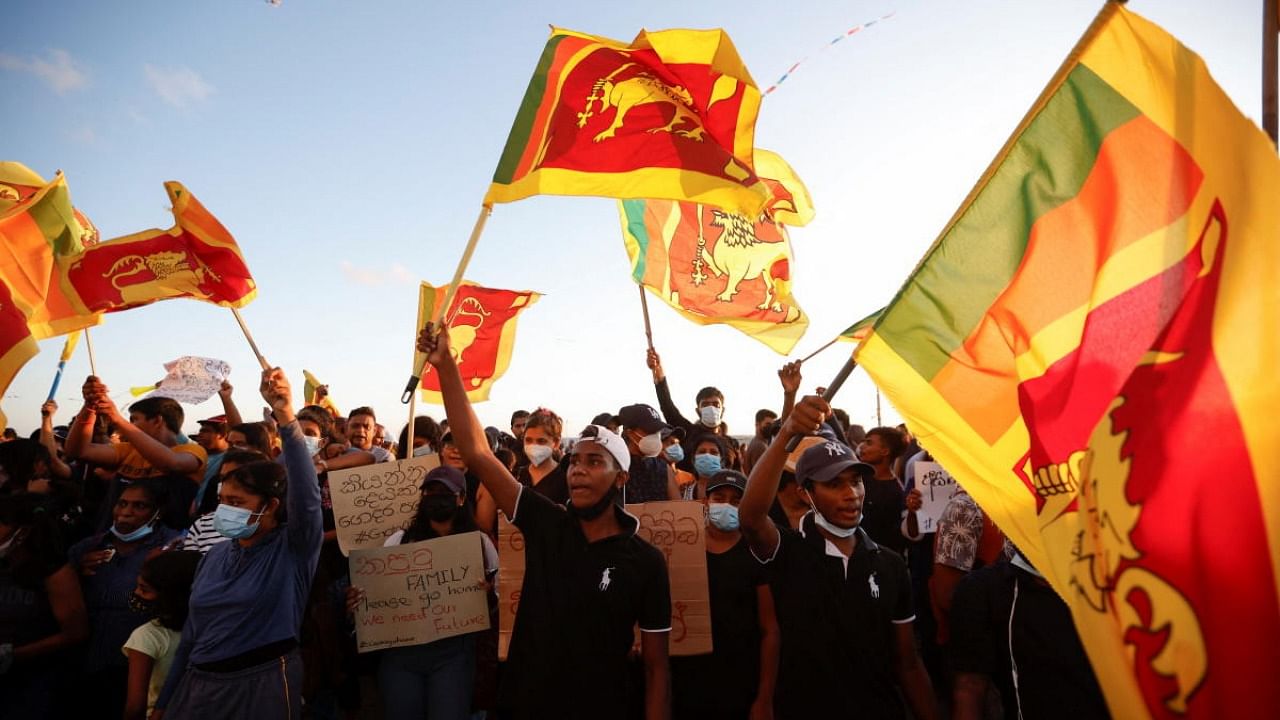
Sri Lanka on Sunday marked the first anniversary of the historical people’s uprising against the previous government's mismanagement of the country's economy which has seemingly ended the Rajapaksa family's hold over power.
The radical Inter University Students Federation has called for protest action at universities today marking the anniversary.
The uprising forced the then President Gotabaya Rajapaksa to flee to the Maldives as tens of thousands surrounded his official residence demanding his resignation as president for steering the country to its worst economic crisis.
The public protests which started opposite his private residence in early March last year culminated in his ouster in mid-July.
The activists occupied the entry to his secretariat in early April and set up the ‘Gota go home village’ in the nearby Galle Face esplanade.
The Aragalaya (protest) campaign was three-fold, an activist said.
“To seek Gotabaya ouster, seek an immediate resolution of the economic crisis, and a political system change," Dr Pathum Kerner, a front-line leader of the protest movement, told reporters on the first anniversary of the protest.
He said while the first two targets had been achieved the political system change could only happen in the longer run.
“It will be the next election that will bring in the system change we hope for," Kerner said.
He said the economic situation has improved over the last year with people, who suffered from long hours in queues for essentials, now feeling relieved. Over 20 people died due to exhaustion in long queues.
Rajapaksa, who later fled to Singapore and sent in his resignation from there on July 13 last year, was replaced by the incumbent Ranil Wickremesinghe.
A parliamentarian from the ruling SLPP (Sri Lanka Podujana Peramuna) party was killed while over 70 parliamentarians including Wickremesinghe suffered arson attacks on their personal properties during the protest.
With several actions to revive the flagging economy accompanied by an IMF (International Monetary Fund) bailout, Wickremesinghe was able to steer the country into calmer waters after the uprising.
He has introduced painful economic reforms and held back holding a local council election citing poor finances to fund holding it.
The country, which declared its first-ever credit default in mid-April last year, secured a bailout from the IMF of $2.9 billion spanning over 4 years subject to reforms being put in place.
While approving the bailout by the Executive Board of the fund, the IMF managing director, Kristalina Georgieva, warned that Colombo must continue pursuing tax reform and greater social safety nets for the poor – and rein in the corruption that has been partly blamed for the crisis.
"The authorities should step up growth-enhancing structural reforms with technical assistance support from development partners," she had said.